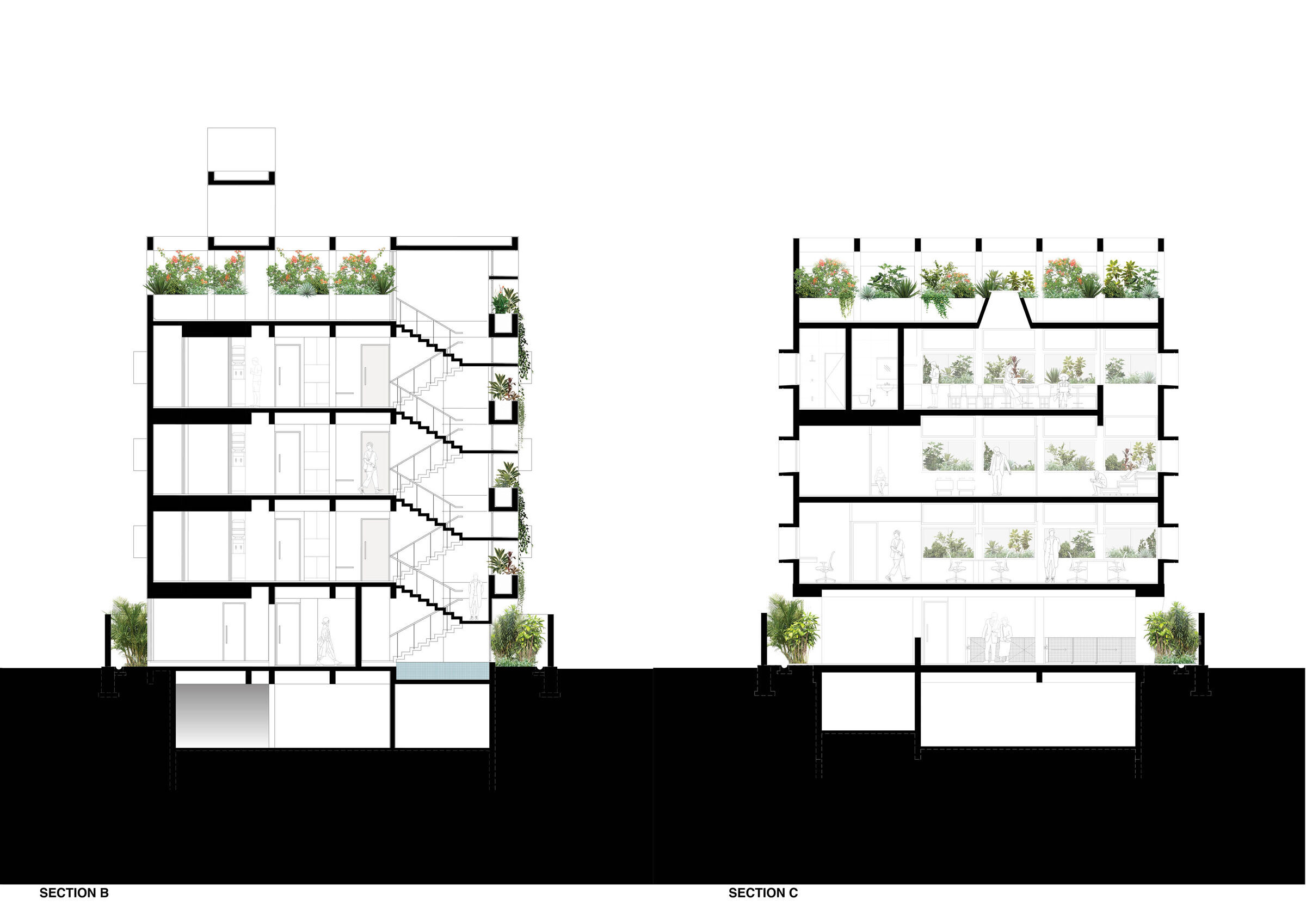This project came to our studio in 2018 as a refurbishment, extension & interior modification project. A single storey old house on a plot size of 50’ x 80’ that was being used as an office space. The entrance patio was the reception, bedrooms were meeting/discussion/conference rooms and the store room worked as server room. The brief was to rework the interior & add one floor to function as extra workspace and a cafeteria. However when we did a structural assessment of the building, it was discovered that the slabs rested on columns, there were no beams! The decision to bring down the old building and construct a new one was taken.
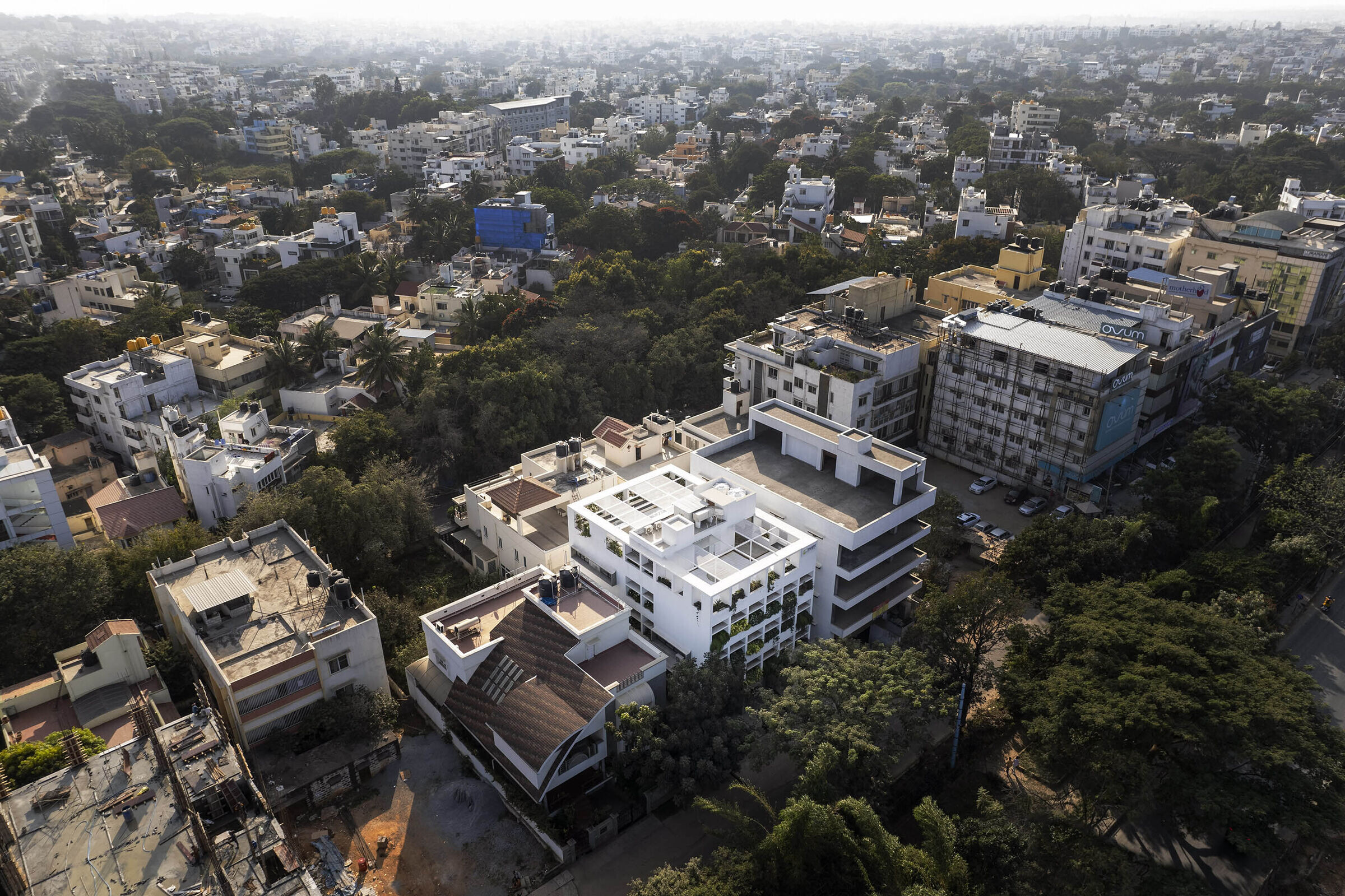
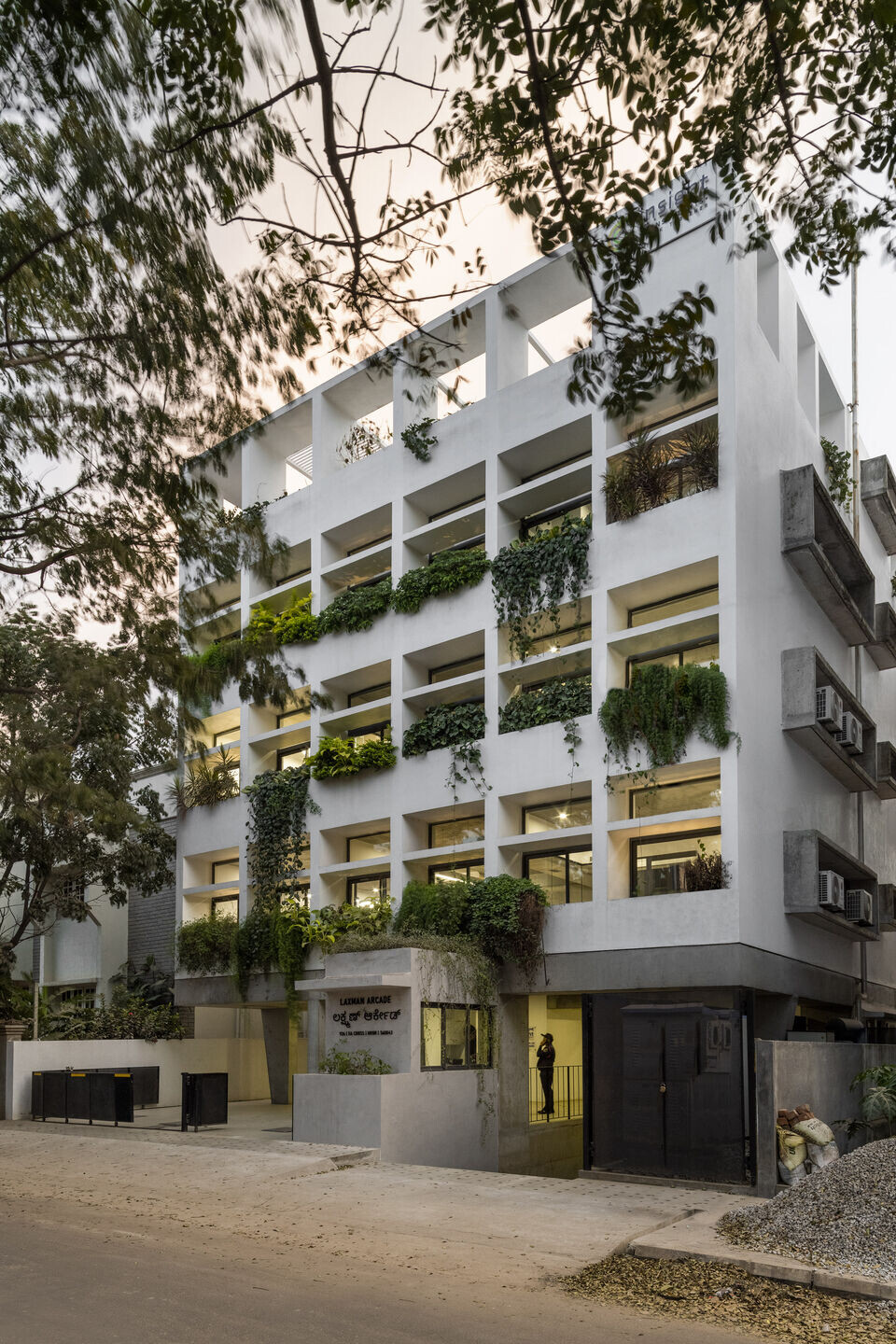
The design process led us to some pivotal questions. Why are office buildings in India/tropical context a certain type mimicking the glazed facades of the west? Why are the designs/facades of these buildings so ubiquitous? Why are office buildings never climate/context responsive? Why are the choices for materials always driven by what’s swankier?

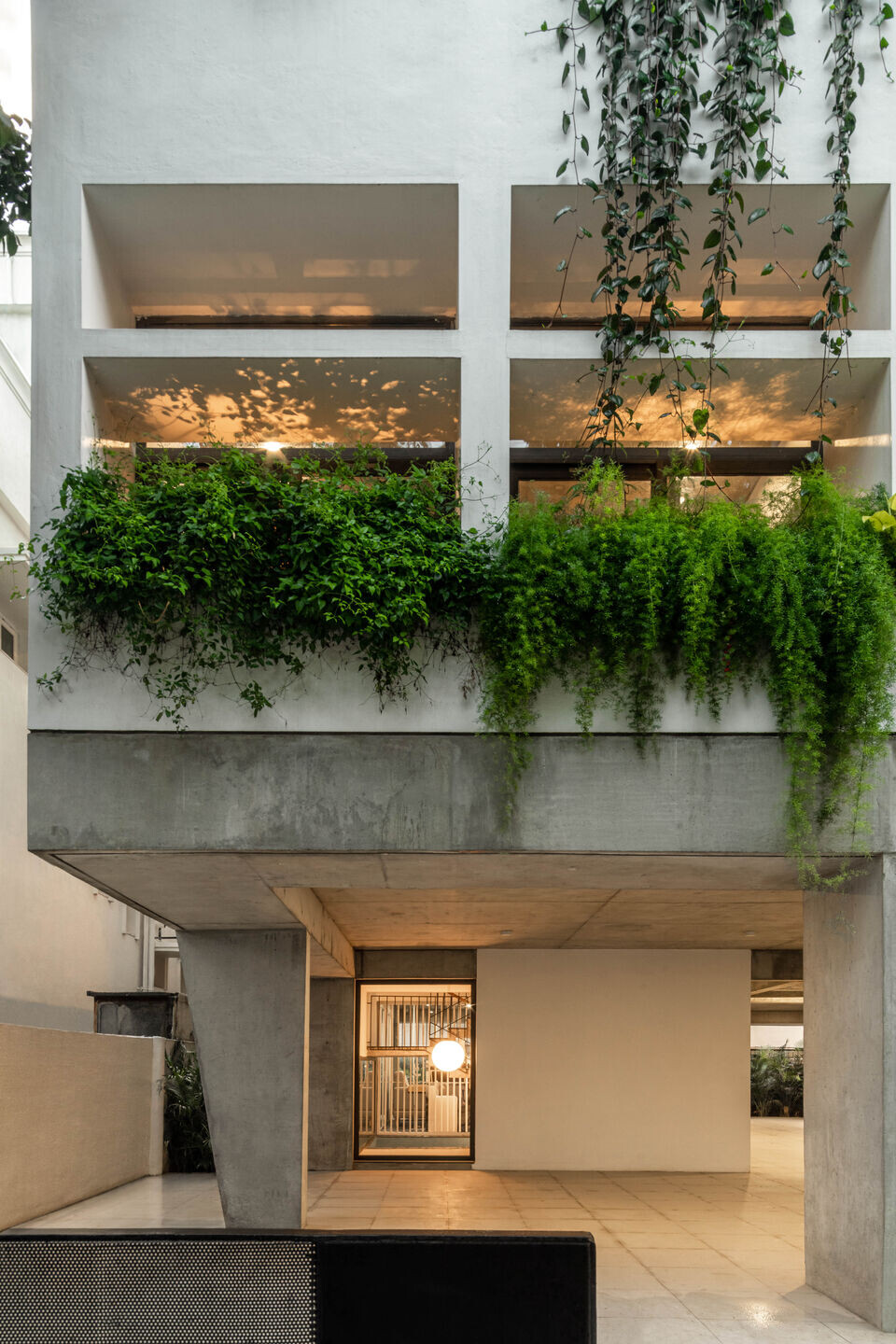
The 50’ x 80’ plot is landlocked on two sides by residences and a commercial building on the third. The front faces a service road attached to the outer ring road with a green buffer in between. The approach for the architecture of this building is a response to its surroundings. It is the reinterpretation of the forms of living, of the domestic in its built form and blend in to create a cohesive environment.
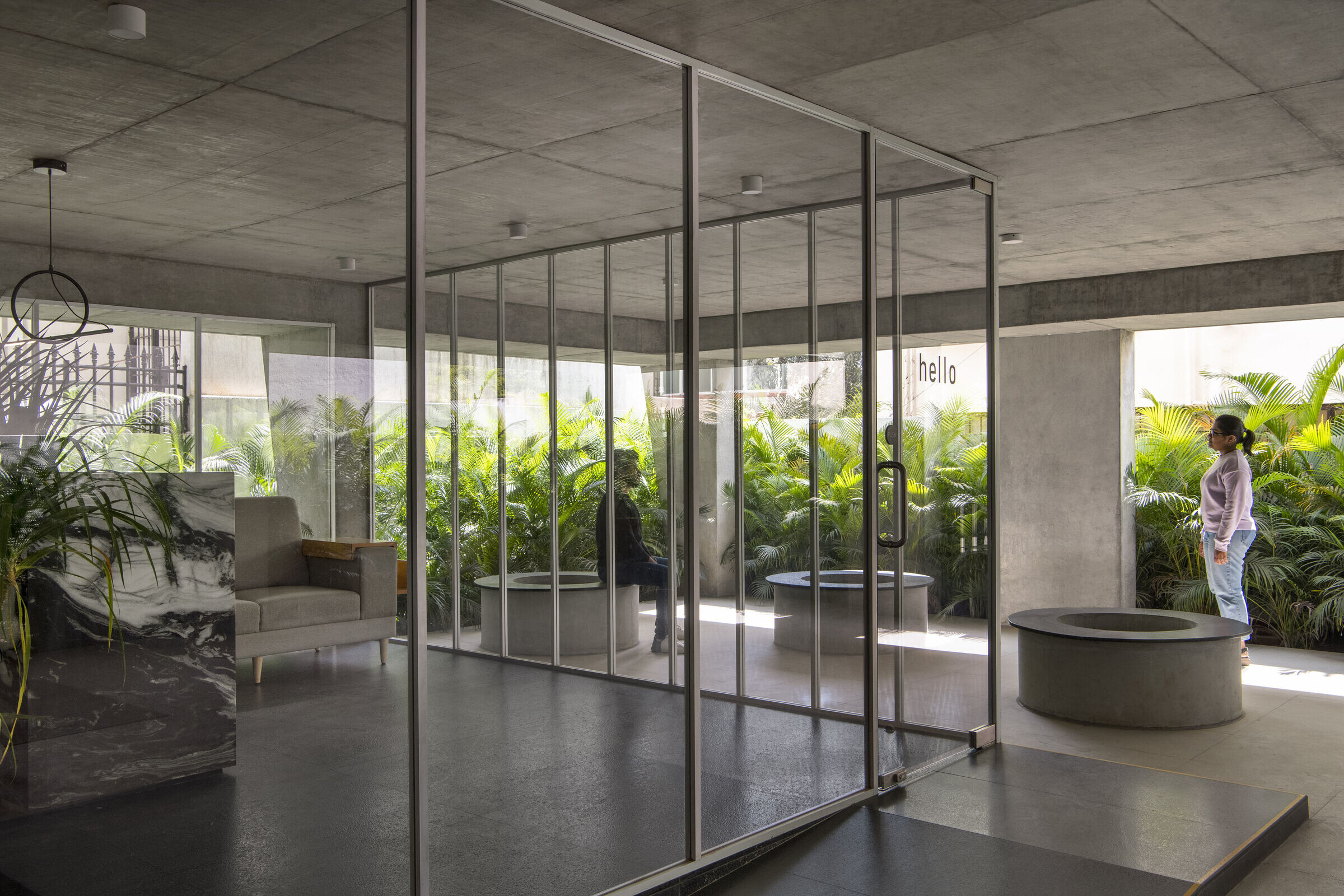
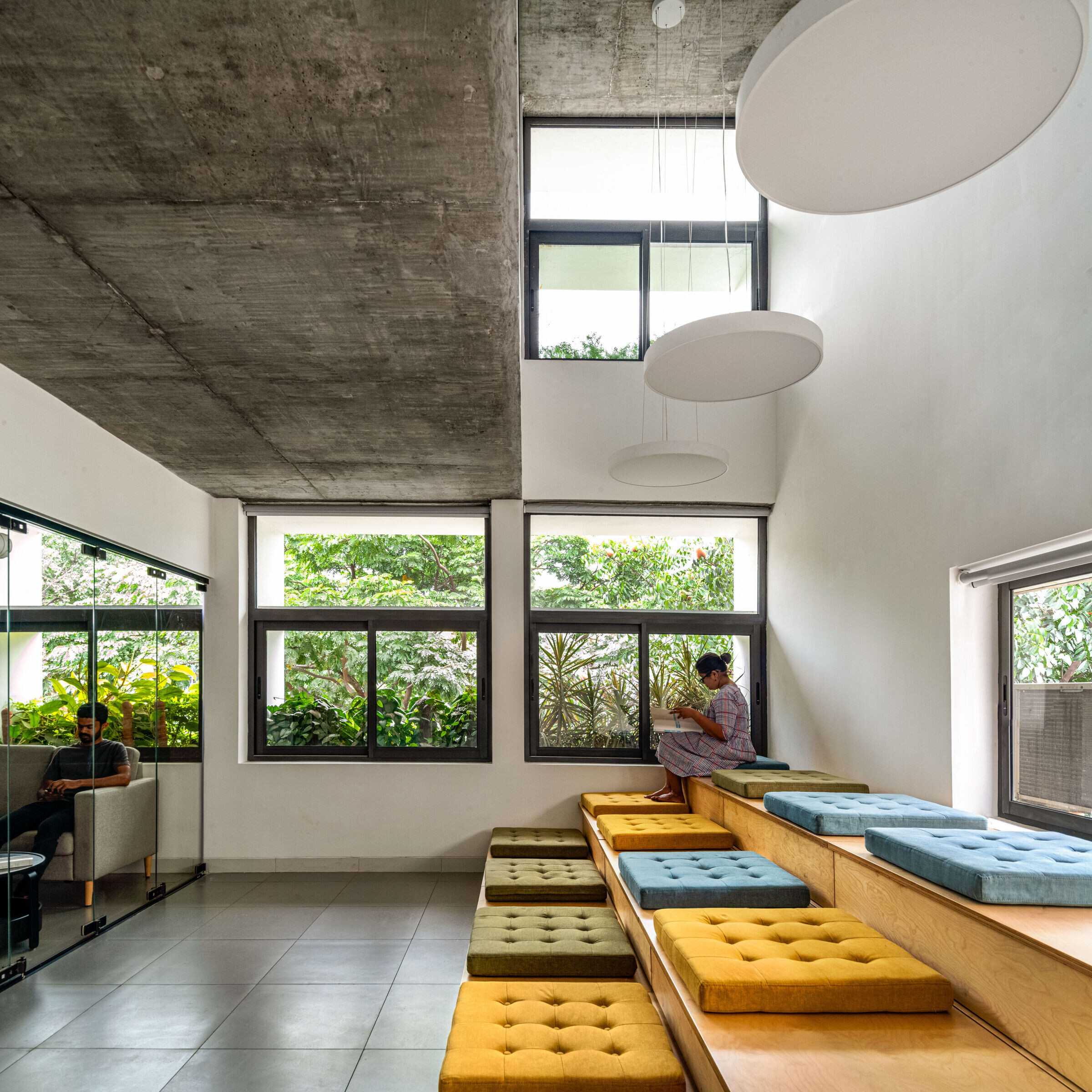
Modularity?
The programmatic distribution is logical. The biggest challenge in institutional spaces like this one is the demanding equation of the diverse flows that cohabit within it on a daily basis. To manage within a spatial order the different intensities, frequencies and characteristics the building has been divided into three volumes – public, private & collective. In this case, it was necessary to completely redefine the spatiality inside the building to meet the new program and all the functional aspects of the company. The basement and ground house public programs like parking, reception & visitor waiting area. The first and second floor were allocated to staff areas, workspaces, discussion rooms. The third floor houses the collective functions like cafeteria & a multipurpose room. The terrace acts as a decompression area with an amphitheatre nestled within an urban garden.

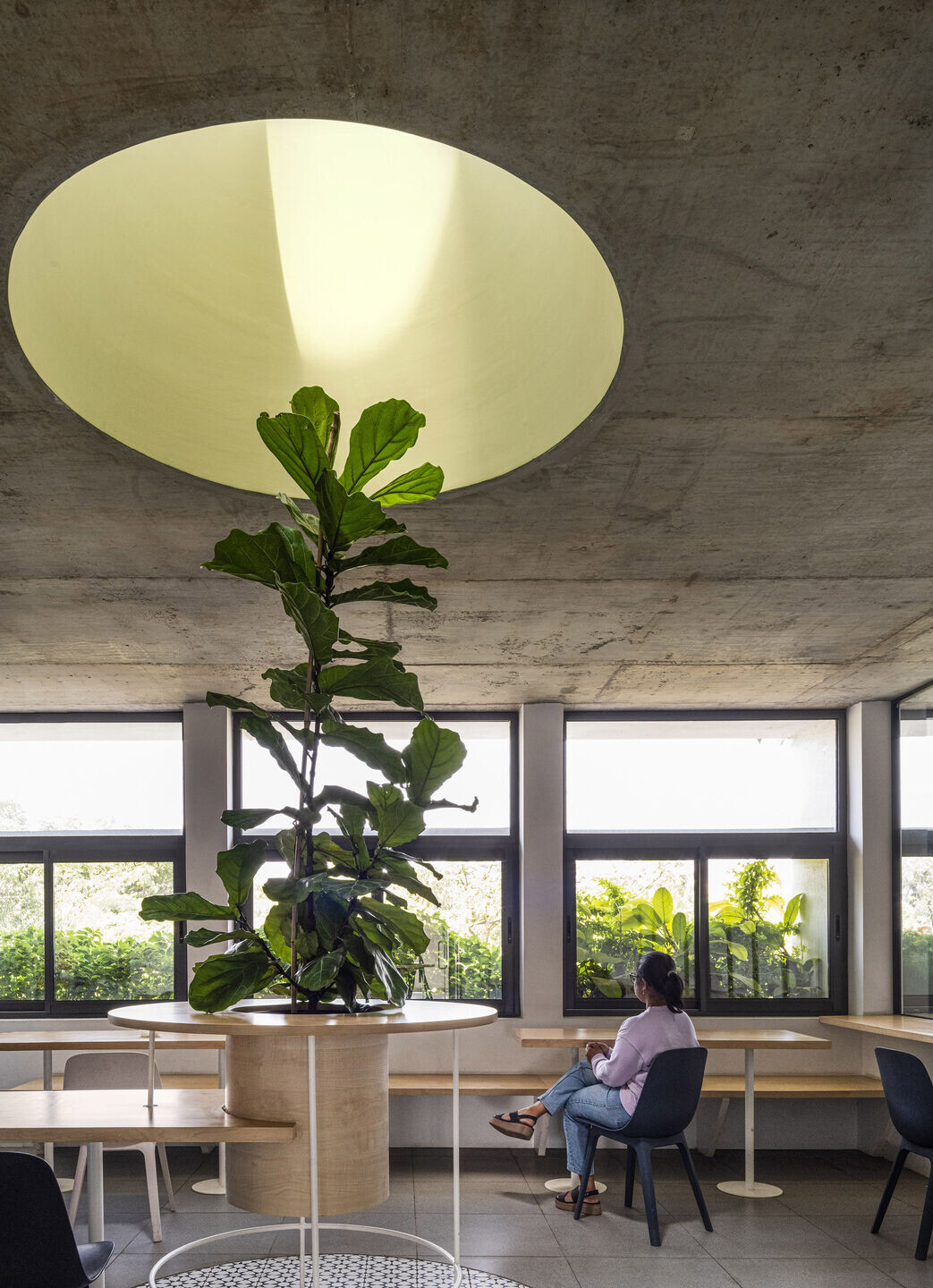
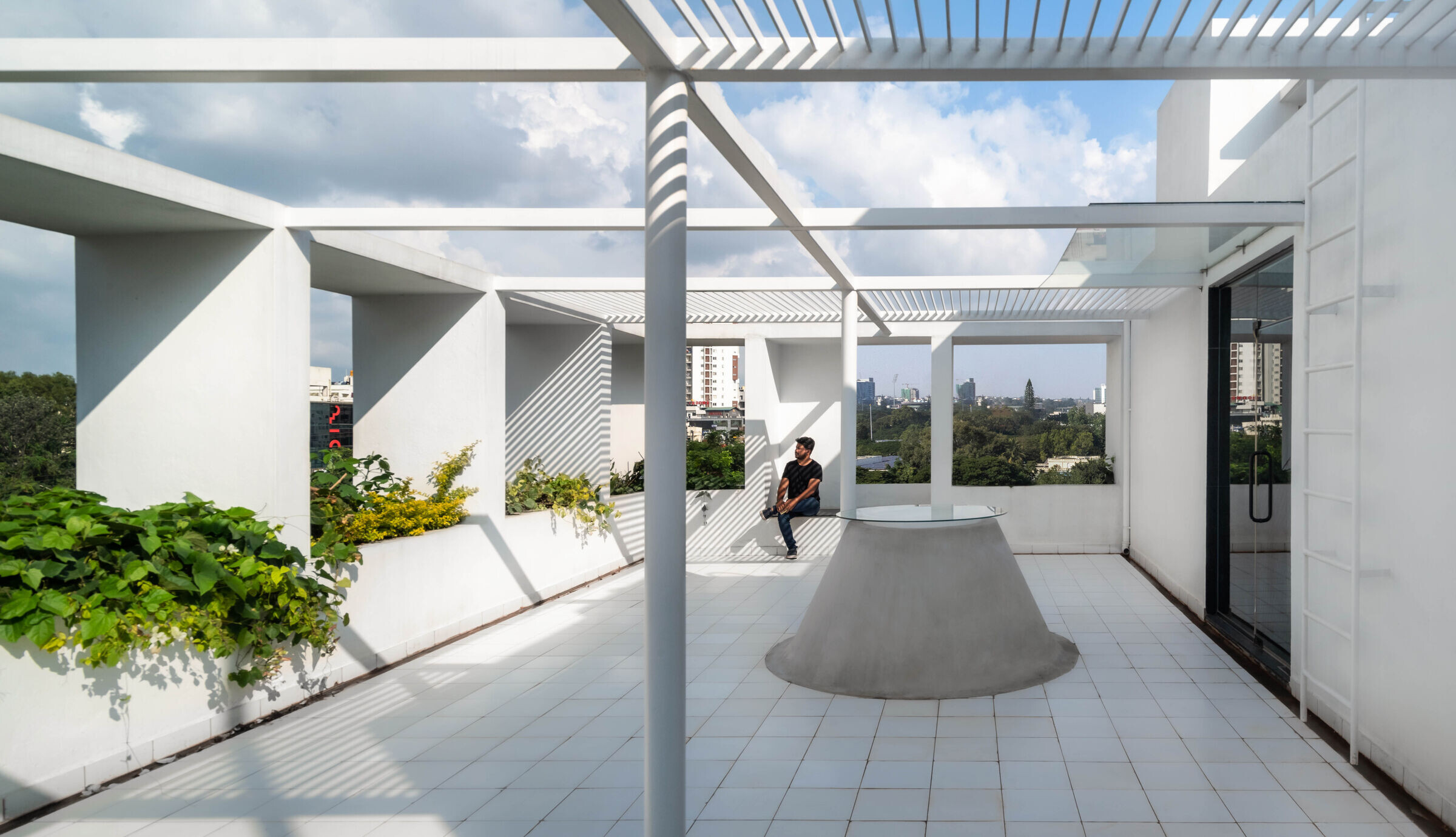

The building structure, a slab-beam-pillar system with stiffening cores, which allows for great flexibility in use and characterizes the appearance of the new building. The facades are designed differently according to their orientation. The sides & the rear facades, the most sensible thing was to separate them from their adjoining neighbours and have only strategic openings for light & ventilation. The front however is punctured completely with a grid of windows. The windows are setback by 600mm into the floor plate. The displacement in plan thus giving us space to build planters all along the front of each floor. Vegetation is treated as a tangible material in this building, its contribution however is intangible. It’s rational to recognize the context that it sits in and responds to by creating a second skin to the building which reduces the heat hitting the glazed façade.

